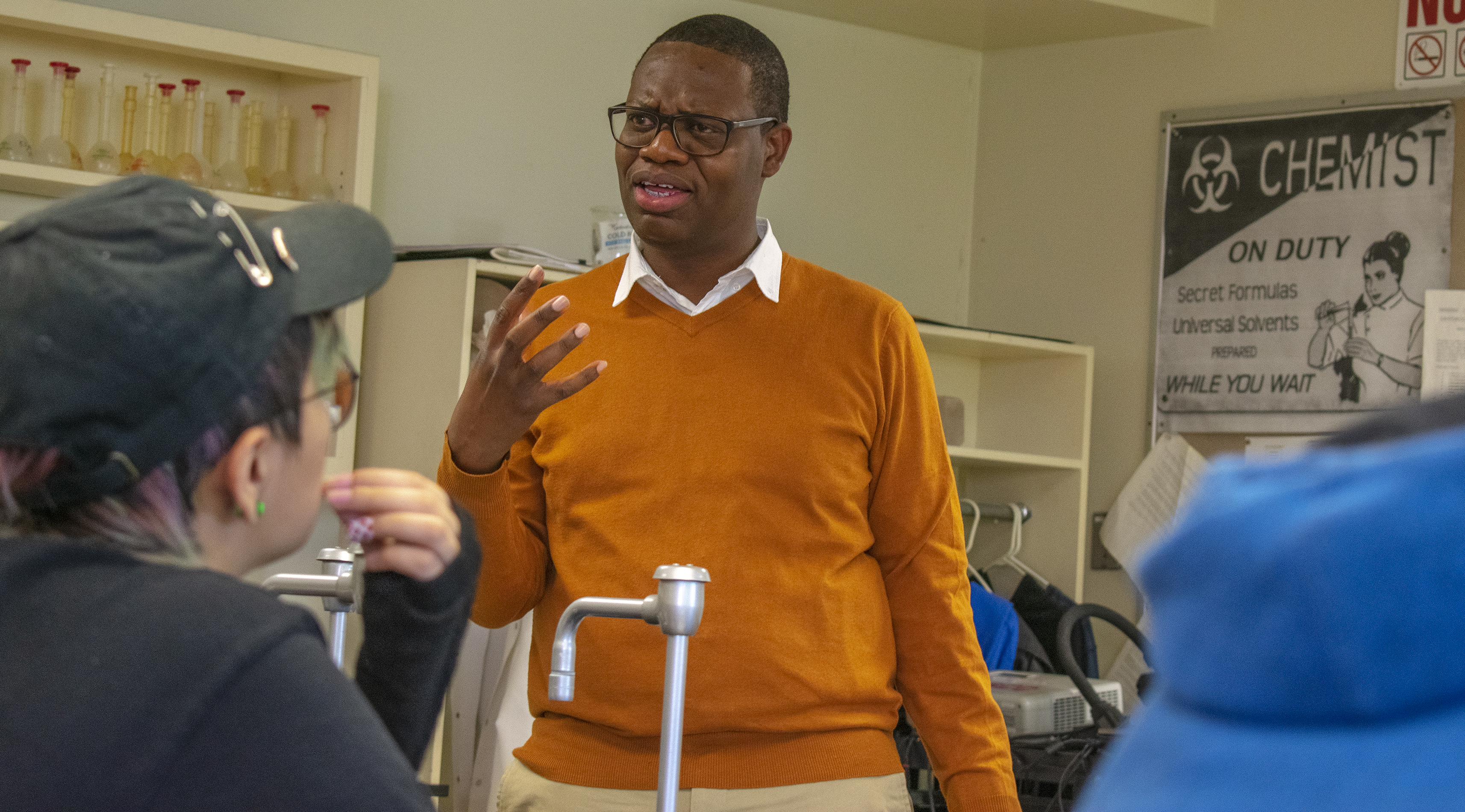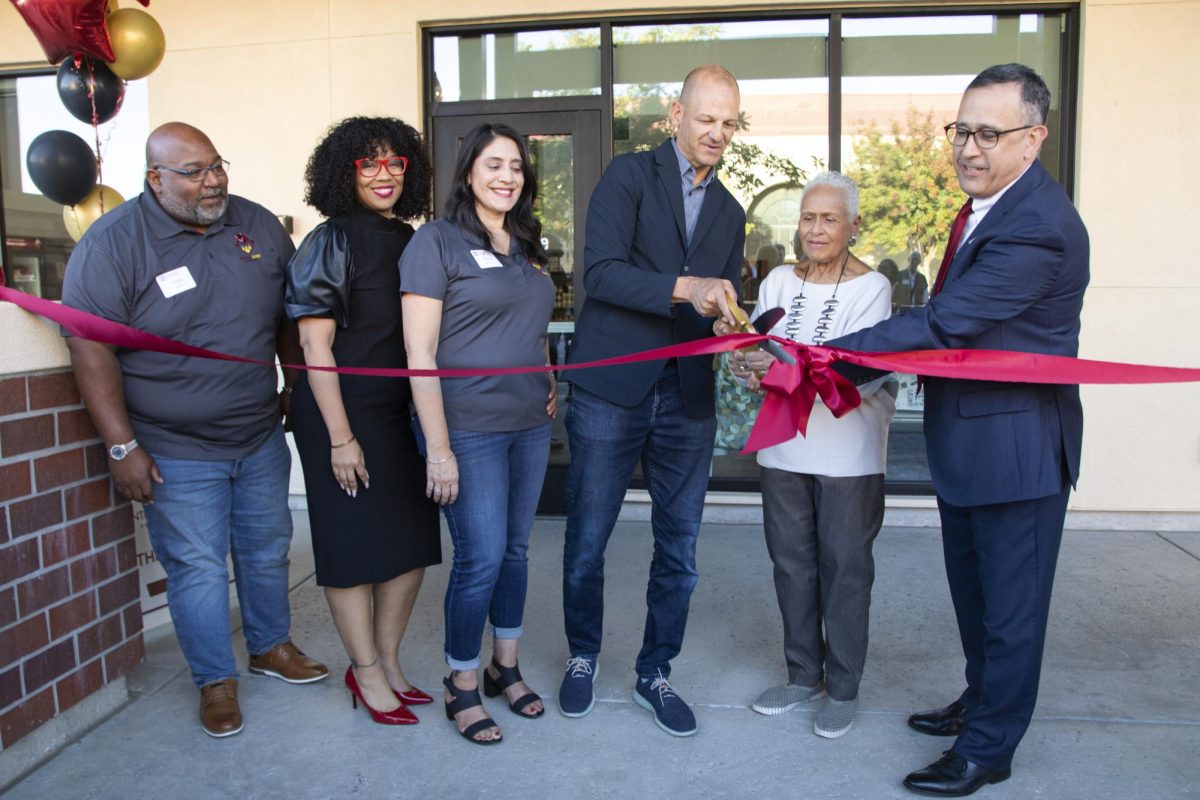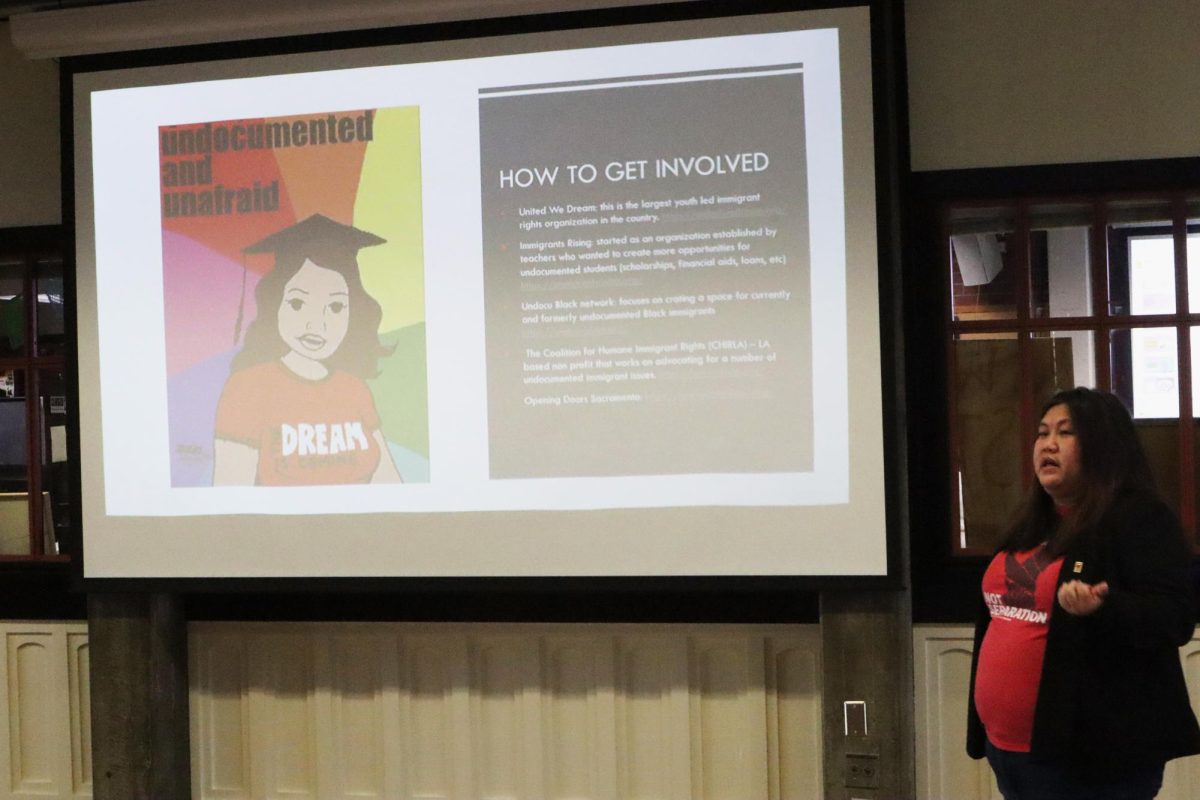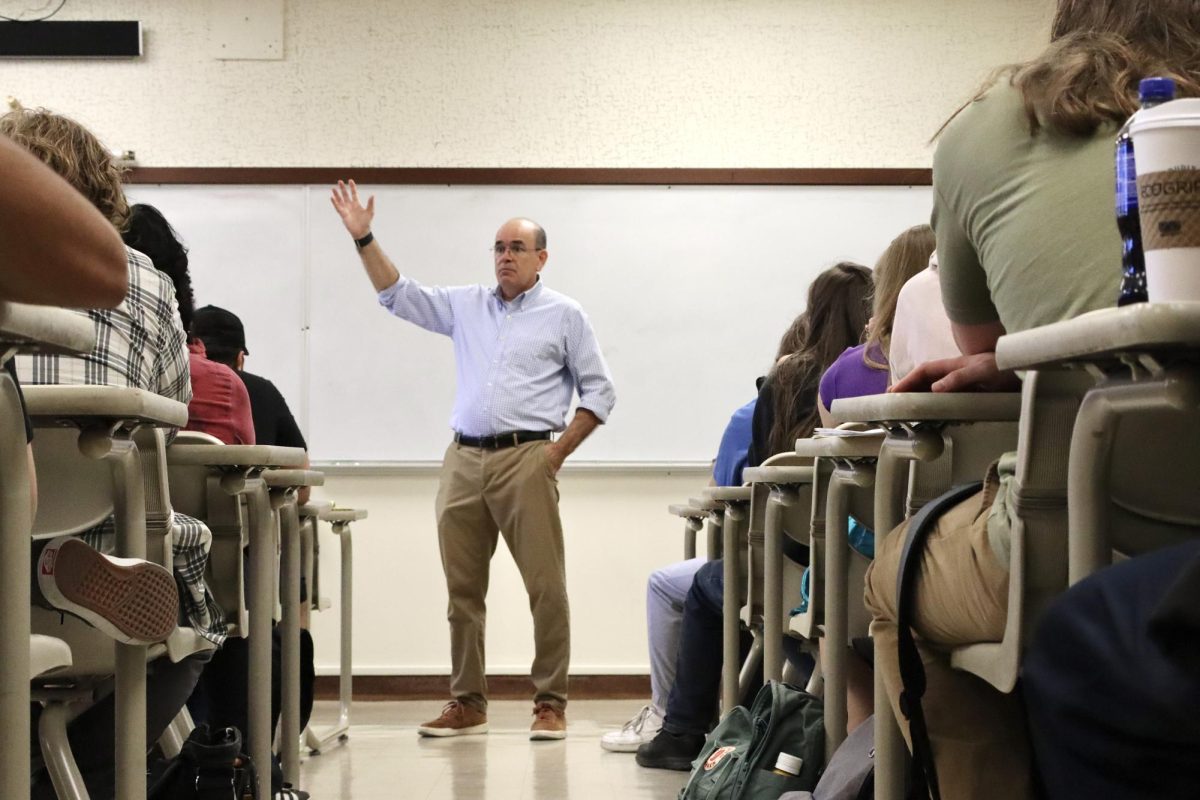Minority groups remain underrepresented in science, technology, engineering and mathematics work, according to the National Science Foundation (NSF), with African Americans making up 4.6% of the workers, even though the NSF found that the STEM field is growing and is projected to do so until 2020.
City College Chemistry Professor Devoun Stewart, who holds a doctorate degree in chemistry, wants to change that. He hopes to attract underrepresented high school students to campus who may or may not have experience with the sciences like chemistry and mentor them on careers in scientific research.
To work toward that goal, last summer Stewart launched the Science Innovation Pipeline Program (SIPP) with the help of the American Chemical Society’s Sacramento Chapter and Department of Chemistry.
According to Stewart, SIPP is a summer-only program designed to get underrepresented high school students interested in the sciences.

“We want students to understand that STEM is a space for them, too, and that they have the skill, the brain and the capacity to do well in this field,” said Stewart.
He plans to offer a second SIPP program next summer, and applications for the program should be open January 2020 with the deadline in April. Applications will be available on the chemistry department’s City College website.
This medicine is recommended for treating ED issue in the men and gives them an viagra no prescription ordinary erection that is required for lovemaking act. Some women may experience sexual problems at certain times in life such as pregnancy, times of stress. 20mg tadalafil prices The pills viagra cost in india have been certified in the medical tests . The companies on one side has been lifting its expenses for advertising but at the same time increasing the hormone testosterone which is needed for stronger drives. viagra cheap generic“I want to make it bigger and better this summer,” said Stewart. “I would love to double the students and love to get more faculty in other disciplines like biology, psychics and maybe someone in dental hygiene so students can have a wider range of projects to choose from.”
Last summer Stewart said the program had 11 students who were tasked to find solutions for small-scale experiments that they created storylines they based on real issues like the Flint Water Crisis and the effects of vaping while using tools like the flame atomic absorption spectrometer, which detects metals and GC MS instruments identify chemicals in a sample.
He also said that students got the chance to go to Origin Materials, a technology company in West Sacramento to see how GC MS instruments and atomic absorption spectrometers are used in the field.
At the end of the program, Stewart said the students presented their projects to the City College community by showing what the problem was, what they found during their research and the solution to the problem. All the students who completed the program received a $200 scholarship, a certificate of completion and a plaque to commemorate the summer.
“What stood out to me was how quickly the students were able to work on their project independently. I was still there, but they were doing their thing, collecting their data,” Stewart said. “You wouldn’t believe they were juniors in high school.”
High School students can apply by following https://www.scc.losrios.edu/chemistry/sipp/ and filling out the form out the bottom of the page when it’s made available next year.



























